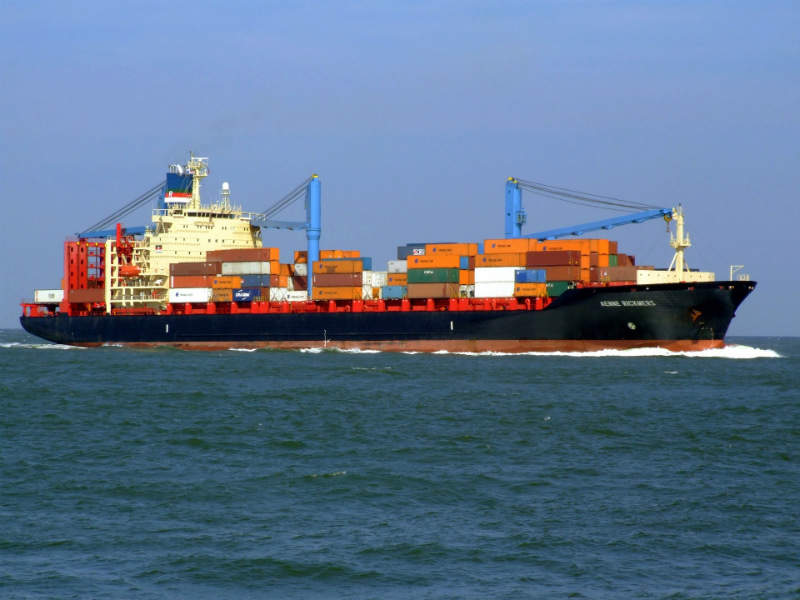
When the International Maritime Organization (IMO) formalised its first ever emissions target for the shipping industry in April, it should have been heralded as an historic occasion.
But the IMO’s declaration to reduce shipping’s greenhouse gas contribution by 50% by 2050, compared to 2008 levels, was strangely anticlimactic.
The European Union (EU) for one – which wants a curtailment of at least 70% – sees the measure as falling short, while environmental groups such as Transport & Environment believe the cuts are not sustainable within the confines of the Paris Agreement (although shipping, along with aviation, isn’t technically included in the UN accord).
Several shipping operators, including Maersk, also went on the record to say they had hoped for a more sizeable commitment to decarbonisation. Some groups have come to the conclusion that investment in new fuels will be imperative if the industry is to not only meet the goals of the Paris Agreement – which aims to get global warming under two degrees – but also the IMO 2020 sulphur cap.
Fresh research from the University of Manchester’s Tyndall Centre for Climate Change indicates that sourcing suitable fuels is going to be a tall order. The centre’s study into potential alternative fuels for shipping claims that the current options are minimal.
Few options: why LNG won’t cut it in meeting the IMO’s new target
In the starkest of terms, there are presently no widely available fuels to pare back the industry’s carbon footprint and meet current environmental regulations.
How well do you really know your competitors?
Access the most comprehensive Company Profiles on the market, powered by GlobalData. Save hours of research. Gain competitive edge.

Thank you!
Your download email will arrive shortly
Not ready to buy yet? Download a free sample
We are confident about the unique quality of our Company Profiles. However, we want you to make the most beneficial decision for your business, so we offer a free sample that you can download by submitting the below form
By GlobalDataThis also includes liquefied natural gas (LNG), often promulgated as the answer to shipping’s emission problems. Another recent study from analysts at JBC Energy put the kibosh on LNG’s panacea status, concluding that even if the entire industry switched to the gas, it would still fall short of the IMO’s new target by 350 million tonnes.
“The thing people forget about LNG is that it is still a fossil fuel,” says John Broderick, a lecturer in energy and climate change at the University of Manchester and a researcher at the Tyndall Centre.
“It may be lower than heavy fuel oil, but it’s still a high carbon fossil fuel and produces a substantial quantity of CO2 when you combust it. It doesn’t provide a great deal of benefit in the context of the Paris Agreement objectives, because we are not looking for marginal, incremental change – we want a wholesale change to zero-carbon energy systems within the next few decades.”
Fresh hope: the potential of hydrogen and bio-derived fuels
Yet, the Tyndall Centre’s report does have a faint silver lining, identifying hydrogen and bio-derived fuels as carrying potential as alternative fuels for the shipping industry.
There are, however, caveats.
Hydrogen, similar to other synthetic fuels, relies on decarbonisation of both its energy input to production and other feedstock materials to deliver reductions in greenhouse gas emissions.
The study claims bio-derived fuels to be an “abatement option, but only if it can be ensured that land-use change whilst growing biomass does not impact wider potential savings and the sector is able to compete sufficiently for their use”.
“Both hydrogen and bio-derived fuels produce substantial CO2 reductions, but achieving that is largely outside of the shipping industry’s control,” adds Broderick.
“For hydrogen, excess renewable energy must be available to provide the hydrogen that is then combusted on the ship. That has a lot to do with the upstream production and energy system.
“And with bio, the hazard of induced land-use change can be seen as a whole research subject in itself – the climate impact of bio energy systems.”
Thorough going over: the importance of life cycle assessments
Researchers at the centre also conducted a life cycle assessment (LCA) of current and future fuels used by the shipping companies. This included measuring the impacts of using six emission types, consisting of local pollutants (sulphur oxides, nitrogen oxides and particulate matter) and greenhouse gases (CO2, methane and nitrous oxide).
For a fuel to be deemed as a viable alternative, says Broderick, it has to meet a range of complex environmental criteria over its entire life cycle, rather than being gauged by fuel combustion alone.
“What LCA does is allow you to analyse the trade-offs and the sources in the supply chain for each different fuel or technology,” he explains. “So during our study, we looked at the well-to-propeller life cycle, which takes into account what’s happening upstream in production, as well as what’s happening onboard the ship in terms of efficiency and combustion processes.
“That tells you about the trade-offs you have between different fuels. For example, we saw that particulate emissions derived at their greatest from bio-derived fuels – even though bio-derived fuels produce lower sulphur emissions. It’s not simply a case of good versus bad.”
Looking elsewhere: the options beyond fuels
One thing’s for sure, shipping cannot be short-sighted in its outlook and environmental commitments. As an industry that presently accounts for more than 2% of global carbon emissions, it must make a move away from bunker fuels if it is to be seen as truly green.
Research into alternative fuels should not cease, but at this current juncture it is looking more likely that investments will be directed into other options.
“If the shipping industry is really serious about mitigating its emissions directly, there might be more potential in the likes of slow steaming, route optimisation and wind assistance,” answers Broderick.
“Even electrification, using batteries, might be worth looking into.”







